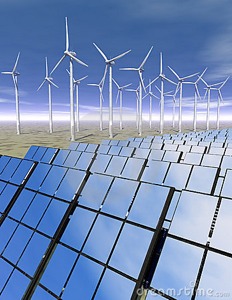Sign up for FlowVella
Sign up with FacebookAlready have an account? Sign in now
By registering you are agreeing to our
Terms of Service
Loading Flow

We all agree that in the long run the world needs to find alternatives to oil, gas, and coal—the fossil fuels. Fossil fuels generate CO2, which adds to global warming. The power sources that replace fossil fuels must be cleaner, and not add to pollution or climate change. As an added bonus these fuels should be substances that are easily located—and ideally, renewable energy sources. But what?
The answer lies with the environment around us: sunlight, wind, water, plants, and heat from the Earth. Some of these sources are as old as can be. Wood has been burned for heating and cooking since humans first learned to make fire. Windmills helped irrigate the fields of ancient Persians. The ancient Greeks and Romans used falling water to turn waterwheels. But by the early 20th century, cheaper fossil fuels all but replaced these traditional sources in many places as the provider of power.
Unlike fossil fuels, energy from sunlight, wind, water, plants, and geothermal heat does not create extra carbon dioxide, and so does not add to global warming. Best of all, unlike fossil fuels, which will become increasingly scarce, these fuel sources are renewable and will never run out. One day, they may completely replace fossil fuels.
Safer alternatives for fuel
